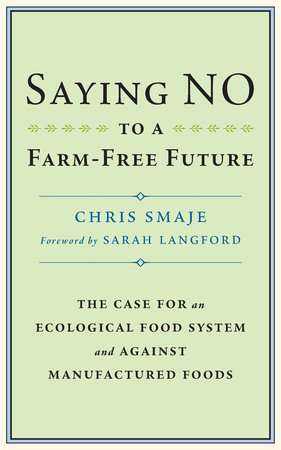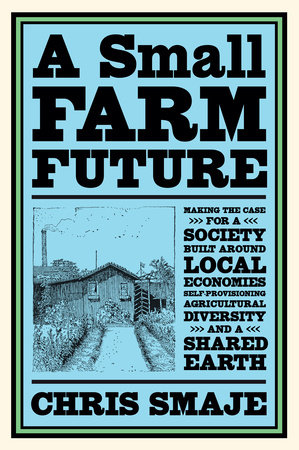Finding Lights in a Dark Age: Sharing Land, Work and Craft
Author Chris Smaje
- Publish Date: November 11, 2025
- Format: Trade Paperback Original
- Category: Social Science - Social Classes & Economic Disparity
- Publisher: Chelsea Green Publishing UK
- Trim Size: 6 x 9
- Pages: 256
- US Price: $24.95
- CDN Price: $33.50
- ISBN: 978-1-915294-73-9
Reviews
Dougald Hine, author of At Work in the Ruins
‘This is how we make it through. Amid all the greenwash and business as usual, facing denial, deflection and despair, Chris Smaje brings his trademark integrity, generosity of spirit and clarity of thought to the world as it is – and as it could be. It feels grittily real, this mosaic of ideas. Of communities of place, purpose and passion welding themselves together with a plan B when the lights have gone out and we’re past the point of fighting over toilet roll because the supermarkets are empty and dark and – horror! – the internet has gone down. Who are we then? What values do we share that really matter to us? How can we build something from the emergent rubble that makes our hearts sing? This is a blueprint, and Every Single Individual who can read should have a copy and refer to it. Our world would be quite different if we did.’
Manda Scott, author of Any Human Power; host, Accidental Gods podcast
‘As Gaia lays waste to the hubris of capitalist modernity, it’s becoming clear that we humans need to unlearn many lifeways and invent new ones. A big thanks to Chris Smaje, then, for expanding our imaginations and giving us courage. He explains how, in the coming epoch of the Ecocene, we can create institutions and cultures that honour care, social reciprocity, bottom-up empowerment and respect for Earth as alive. All will be essential.’
David Bollier, activist-scholar of the commons; author of Think Like a Commoner
‘With a blend of deep academic wisdom and of-the-land pragmatism, Chris Smaje looks to a fascinating medieval history to show us how humankind can not only persist but thrive –reclaiming autonomy, community, even joy – in the face of civilizational collapse. Finding Lights in a Dark Age is indeed the antidote to our fear about the current looming global catastrophe. But it is also the push so many of us (myself included!) need to start working in our own small ways, now, for what might be needed in the precarious years ahead.’
Jennifer Grayson, author of Unlatched and A Call to Farms
‘At once pragmatic and visionary, Finding Lights in a Dark Age is a meditation on how we might make the best of the difficult times ahead. Smaje brings every bit of himself to this
book, daring us to upend conventional wisdom about progress in service of a richer and more natural kind of human thriving. Count me in.’
Philip Loring, author of Finding Our Niche
‘Farmer and social scientist Chris Smaje offers a credible, and delightful, glimpse of a small-scale agrarian future. He combines personal experience, cross-disciplinary scholarship and pragmatic analysis with that rarest of grails in future-focused writing: plausible optimism.’
Samuel Miller McDonald, author of Progress
‘Incisive and irenic, this is Chris Smaje at his wide-ranging best, exploring the territories of liveable-but-realistic human futures. Chris sweeps away the cobwebs of late-modern thinking to sketch what a sober pathway through the coming morass might look like. A guiding light!’
Carwyn Graves, author of Tir: The Story of the Welsh Landscape
‘The source of our collective insecurity has its roots in the land – and has erected fences to keep us out. Chris Smaje’s erudite and compassionate investigation shows that our own wellbeing cannot be secured without Earth’s. He offers a vision for how we, the people, can secure our future by giving the labour of our bodies to the land and to each other. In a time of warring narratives, Smaje’s call for sovereignty invites us to tear down the fences that exile us from our own histories.’
Rachel Donald, creator and host, Planet: Critical podcast
‘In this literally vital work, Smaje gazes into the near-inevitable harrowing collapse that is the “future” of this civilisation, with a doughty realism – and a quotidian eye for the likely – that is rarely matched. He refuses to be daunted: he sketches, and quite beautifully so, “thrutopian” possibilities for what deep and transformative adaptations can yield for us, through what is coming. These begin with his wry setting out of how, quite often, as empires decline and fall, plenty of ordinary folk (not to mention other beings) can actually end up better off. This is probably Smaje’s most important book yet – and that is really saying something.’
Emeritus Professor Rupert Read, co-director, Climate Majority Project; author of Why Climate Breakdown Matters
‘The strength of a set of ideas is not in whether the reader is moved to agree with them immediately. It’s that they are compelled to ask themselves why they shouldn’t. That’s what
Chris Smaje has achieved here, in a significant and most welcome development of ideas latent in his two earlier books.’
Adam Greenfield, author of Lifehouse
‘This is a beautiful book – full of insight, wit and earthy humility. Whether or not you agree with Smaje’s view that we’re inevitably headed toward an energy-descent future, there is a lot to learn from him on how to navigate our escalating polycrisis and build new futures and ways of life beyond capitalist modernity. If you agree, as Smaje says, that “the main point of being a person isn’t to get maximum cheapness and convenience”, then read this book!’
Dr Michael J. Albert, lecturer in global environmental politics; author of Navigating the Polycrisis
'A guidebook (or a guiding light) to navigate the “dark ages” ahead and to journey toward localist agrarian flourishing'
Front Porch Republic



